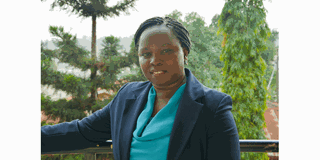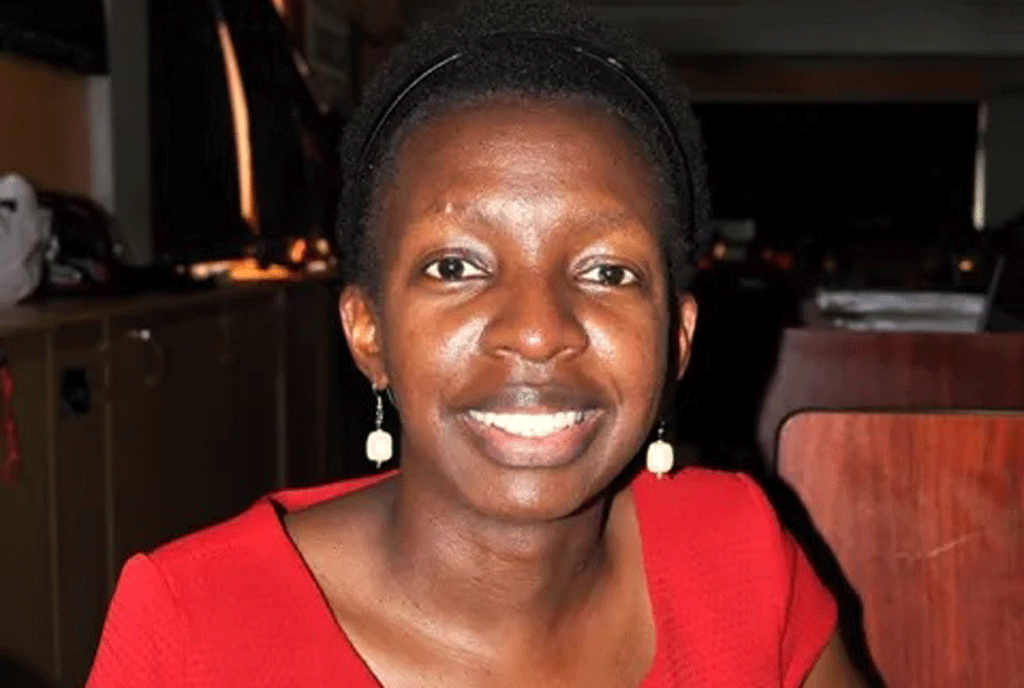Prime
Analogue to digital: Highs, lows of newsroom transformation

Margaret Vuchiri-Alumai, Daily Monitor Editor, 2016-2021. PHOTO/COURTESY
What you need to know:
- We argued over deadlines and headlines to give our readers a top line. These arguments were intense, but never personal, unless a fragile ego chose to hold an eternal grudge..
Early in my career at Monitor Publications Ltd (MPL), there were two incidents that made me dread the role of a Managing Editor. First, an email.
It read: “Dear Margaret, That one who covered the [former Tanzanian President Benjamin] Mkapa story should pay back his air fare to Tanzania (if I am right that he went there for the story).
Monitor at 30: Three decades of blood, sweat and tears
The editor should then use the money to send him back to grammar school or to Mkapa who has a degree in English [language] so [that] the old master can teach him to write properly. If not, the editor and everybody else in the editorial team will be deemed to be from the same school of grammar.
Daily Monitor should go through the proof-reading chain and institute a policy to keep a record of anybody (other than the primary author) who had the opportunity (not necessarily responsibility) of editing the work by virtue of having seen it. As long as the sequence of this process is on record, your job will be easy in terms of correcting errors and improving quality.”
Monitor at 30:It will die with Uganda’s deepest secrets
This feedback was from a family member. If family could be this brutal, how would I handle the public?
Second, an impending death: One Saturday afternoon, the then Managing Editor advised us not to go home because a prominent individual was likely to die that day and the likelihood of a late Sunday edition was high. As a newbie, I found this uncomfortable.
I soon realised these incidents were nothing compared to the challenges a Managing Editor faces. From petty gossip by influence peddlers, treachery by in-house moles to frustrating ‘bureaucracies’ by those who read the financial pages of the company and groups who expect miracles without adequate investment in the journalists, managing the newsroom at the time I did, was like confronting hard-core terrorists with rudimentary missiles.
I assumed the role in 2016 (Daily Editions) and served until January 2021 when I took a career break. Having managed a print publication at the peak of digital disruption when legacy media suffered sustained slump in copy sales, executing innovative content management to keep the newspaper relevant was demanding, but enriching. This makes the experiences of today’s editors unique because they are required to actively participate in initiatives to widen revenue streams through exploring new profit models.
Even as the print circulation continued to drop, it remained the cash cow, which presented challenges. The changing media landscape required the newspaper to focus on analytical, investigative enterprise stories. This, however, required considerable investment at a time when the company was downsizing. There were two restructurings in one year, which left the editorial department thin and exposed the gaps in the way we handled transition from legacy media, whose product is a newspaper, to a multi-platform news organisation that sells content in print, digital, broadcast.
Monitor at 30:Times change but the Monitor’s values don’t
Staff were insufficiently prepared for buy-in and skilling for the positions required to produce quality content. The newsroom should have gone through systematic mental transformation, skills audit, and targeted trainings based on the projected needs of Monitor Publication Limited’s new business direction.
We instead stumbled into unfamiliar territory without requisite preparation at a time of uncertainty in a volatile newsroom due to frequent management changes that started way before the digital transition. There was resistance, defiance, and low morale. We missed an opportunity at the time to critically assess the workforce based on their value and willingness to embrace change.
The Covid-19 pandemic couldn’t have come at a worse time for news organisations that were already grappling with shrinking revenue. We temporarily de-monetised the e-paper during the three-month lockdown, yet we published a newspaper with virtually no adverts. It took sacrifices and fortitude to produce the newspaper with skeletal staff, budget cuts, redesign, and cover the 2021 General Election during that demanding period.
There were stories that stood out, like the profiles of the November Riots victims [under the November riots: Lives we lost series], the [four-time presidential candidate Dr Kizza] Besigye Tormentor story, and human interest stories that offered opportunities for solutions. The people who pursue these stories go through traumatic experiences whether it is a high profile business bribery case in a US court, leaked papers revealing a prominent businessman’s offshore links, or a head teacher uncovered for defilement.
There were some straightforward stories that had deeper implications. Two headlines stand out for me: “We Work with Police, Thugs Tell Kayihura” and “Dogs Trace Thieves to Police Barracks”.
I did make editorial decisions I regret. There was a story I was reluctant to splash, but the section editor convinced me to trust him and the reporter. The day the story was published was one I’d rather forget. There were many such days. It could be a cartoon causing territorial tremors, or making senior management of a top institution descend on us with rage.
I look back to MPL with mixed feelings. It gave me huge strides professionally, but there were low moments too. It was unpredictable. Sometimes the newsroom was the battlefield of [Somalia’s capital] Mogadishu, other days it was Egypt’s Tahir Square during the Arab Spring.
Usually it was normal, full of humour, noise, and laughter. We had freedom of expression that made new hires from ‘rigid backgrounds’ uneasy, but they quickly realised it was the culture – just like our beloved vouchers.
We argued over deadlines and headlines to give our readers a top line. These arguments were intense, but never personal, unless a fragile ego chose to hold an eternal grudge.
There were also vested interests. It could be attempts to alter headlines, leaking what individual editors said in news [headline decision] conferences or a reporter telling you they spotted your news docket in a big man’s office. The newsroom gave me valuable lessons on team work, trust, faith and resilience.
Margaret Vuchiri-Alumai, Daily Monitor Editor, 2016-2021.




